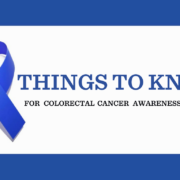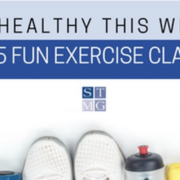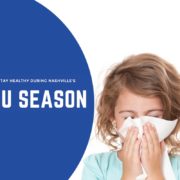Do you experience widespread musculoskeletal pain? Do you often experience extreme fatigue, problems sleeping, cognitive disturbances, or mood disorders?
If you answered “Yes” to these questions, you might have fibromyalgia.
Fibromyalgia is a common cause of widespread musculoskeletal pain, affecting connective tissues, including muscles, ligaments, and tendons. People with fibromyalgia often experience chronic and persistent pain that is usually described as a deep muscular ache with associated soreness, stiffness, burning, and throbbing sensations. The pain may be confined to specific areas, often the neck and shoulders, early in the course of the disease. Multiple muscle groups may eventually become involved as the disease progresses, leading to many painful areas caused by slight pressures called “tender points.” There are no specific laboratory tests or imaging studies used to diagnosis fibromyalgia, so doctors will generally make this diagnosis based upon a thorough medical history, a complete physical exam, and blood tests, which are generally used to exclude other conditions with similar symptoms.
Do I Have Fibromyalgia?
The cause of fibromyalgia is unknown, though it is thought to be caused by a combination of genetic, environmental, and emotional factors. It is estimated that approximately 2-4 percent of the general population has fibromyalgia, and the chance of developing this disease is increased eightfold in family members of a person with fibromyalgia compared to the general population. Similar genetic factors are noted in people with a history of irritable bowel syndrome, depression, and migraines.
Fibromyalgia is the most common cause of generalized, musculoskeletal pain in women between the ages of 20 and 55 years and is six times more prevalent in women. It is characterized by multiple symptoms, including:
- Widespread musculoskeletal pain with extensive tenderness to touch and pressure affecting muscles, joints, ligaments and even the skin
- Severe fatigue
- Trouble sleeping or waking up with diffuse body stiffness and feeling unrefreshed
- Poor memory, migraines/headaches, or poor attention
- Pelvic pain
- Overactive bladder
- Temporomandibular disorder
Fortunately, while there is no known cure for fibromyalgia, there are multiple modalities that can be used in a stepwise approach to reduce the most prevalent symptoms. A combination of effective treatments consisting of both pharmacologic and non-pharmacologic therapies, including physical therapy, can help patients feel better and improve overall health. Our Nashville rheumatologists can help diagnose patients suffering from fibromyalgia.
How can a Rheumatologist help?
Rheumatologists are physicians specializing in musculoskeletal and immune diseases such as osteoarthritis, gout, rheumatoid arthritis, chronic back pain, tendonitis, and lupus. While everyone experiences occasional muscle and joint pains, long term muscle and joint pain that does not improve with rest may need further evaluation.
Because fibromyalgia is complex in nature and difficult to diagnose, a rheumatologist will perform a complete medical history and a full physical exam. A physical exam can help reveal signs of inflammation throughout the body’s joints and musculoskeletal system.
Treatment and management for fibromyalgia
The best overall treatment for fibromyalgia is a multidisciplinary, individualized approach directed at reducing the major symptoms of the disorder, including chronic widespread pain, fatigue, insomnia, and cognitive dysfunction. No single treatment modality works for all symptoms, so each treatment plan is individualized for each patient, consisting of both medication management and multiple self-care physical therapy measures.
- Medications might include Duloxetine (Cymbalta), Milnacipran (Savella), or Pregabalin (Lyrica). Over-the-counter painkillers such as Tylenol or ibuprofen can help provide some comfort from the pain. However, narcotics and opioids are not advised, as patients can develop long-term dependence on the drugs and generally do not achieve the desired pain relief.
- Physical therapy exercises and other nonpharmacologic interventions can form the general backbone of a pain reduction strategy. Strengthening exercises have been shown to help improve the overall musculoskeletal system while improving patient’s quality of life. Swimming and water-based exercises have been found to be particularly helpful because of minimal surface impact compared to land-based exercise.
Self-care has been found to be the most important aspect in keeping fibromyalgia controlled and consists of several main points:
-Regular exercise is important for reconditioning and improving your functional capacity, even though it might initially cause increases in general muscle pain. As your body strengthens and your exercise routine improves, positive results will quickly follow. Consulting a physical therapist can help expedite this process.
-Stress has been proven to be one of the leading causes of fibromyalgia and needs to be reduced as much as possible. In order to reduce stress, following stress management techniques such as meditation and deep breathing exercises are recommended. Even visiting a psychotherapist can provide added benefits.
-Sufficient sleep and rest is essential in keeping fibromyalgia from worsening. It is imperative to follow a well-planned sleep schedule consisting of appropriate sleep hygiene techniques and habits. Common sleep disorders such as obstructive sleep apnea and restless leg syndrome may also require intervention.
-Consuming healthy foods regularly can help with symptoms. A varied diet high in vegetables and low in saturated fats can help you feel better and prevent worsening exacerbations of fibromyalgia. Caffeine, as well as salt and sugar, should be consumed in moderation.
Our Nashville Rheumatologists
At St. Thomas Medical Group, our rheumatologists treat patients in Nashville, Gallatin, Brentwood, and the surrounding areas. Dr. Poonam Somai has been practicing at Saint Thomas Medical Group since 2009 and specializes in ultrasound guided injections of the joint, tendon, and bursa. Dr. Leslie Cuevas moved to Nashville in 2002 and has a special interest in treating patients with fibromyalgia.
Preparing for Your Appointment
Fibromyalgia can be difficult to diagnose. Your physician will want to rule out other causes such as arthritis and similar conditions, which is why an appointment with a rheumatologist may be advised. Prior to your appointment, keep a detailed list of your symptoms. Be descriptive about past medical problems as well as medical problems of parents or siblings. Please bring all medications and dietary supplements to your appointment.
It can also be helpful to keep a written list of questions you want to ask your doctor.
With the correct medical help and guidance, patients can lead much happier and healthier lives. St. Thomas Medical Group has excellent staff specializing in rheumatology in Nashville, TN. Take your first step and make an appointment by calling +1 (615) 964-5823.










